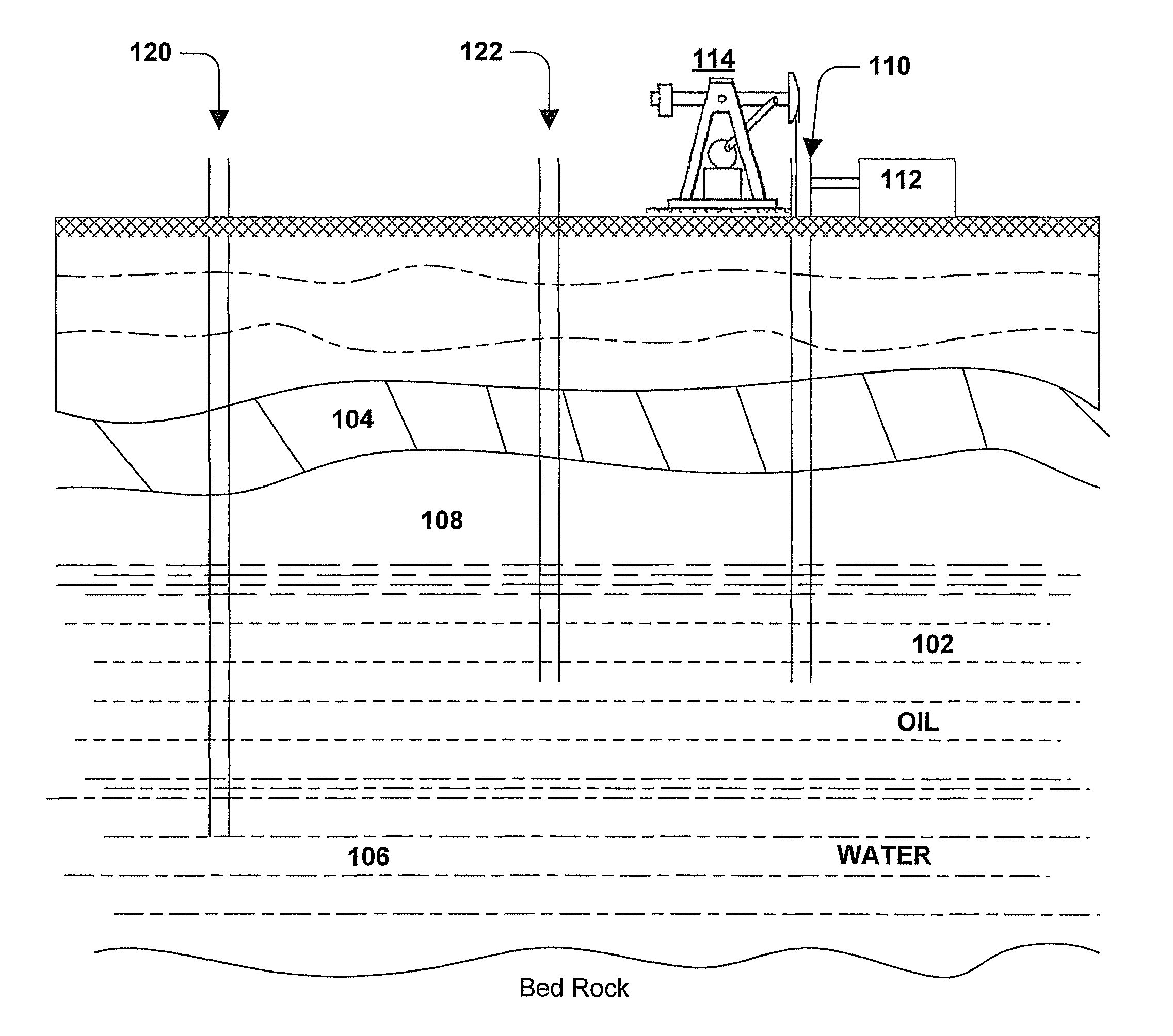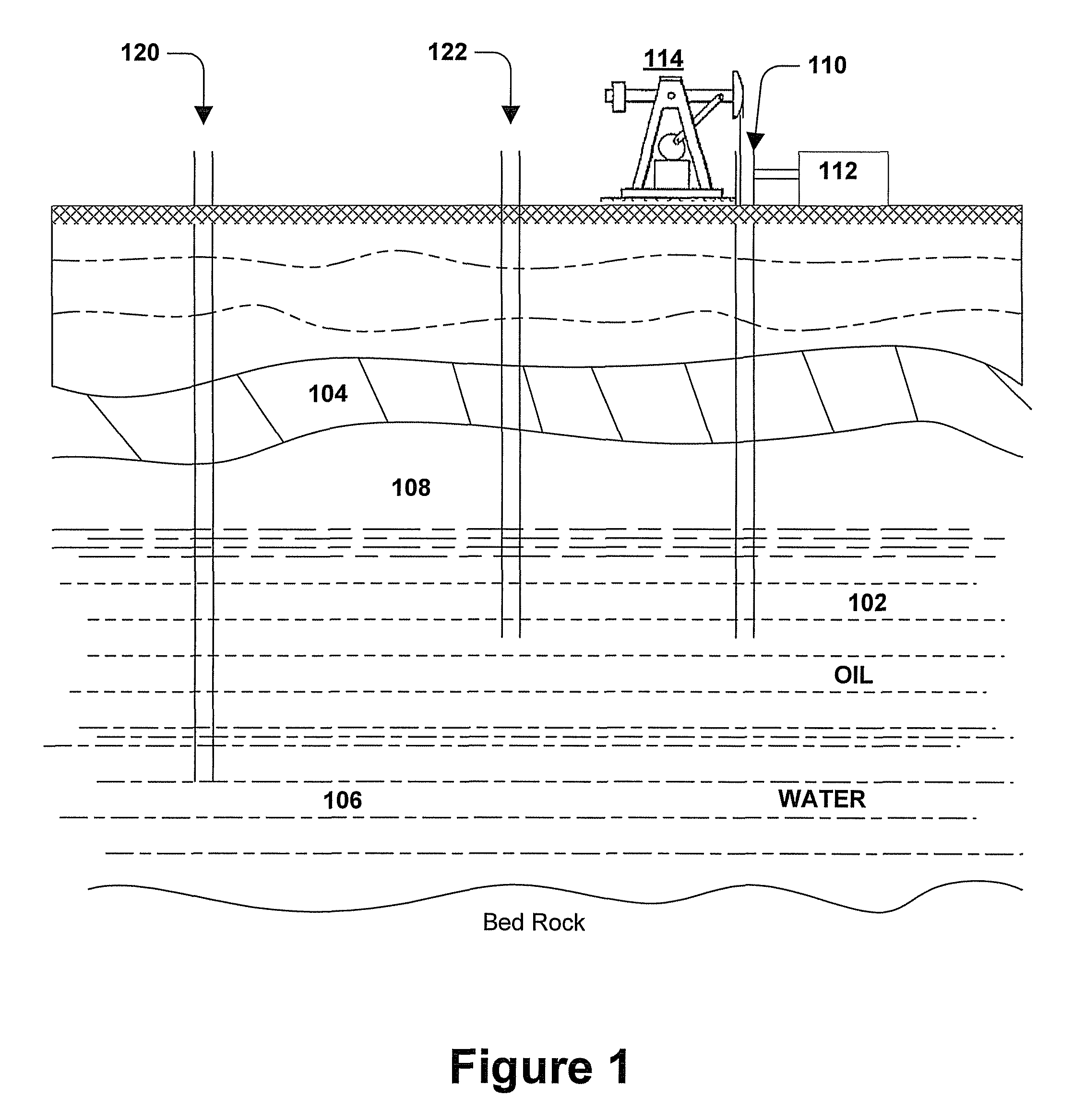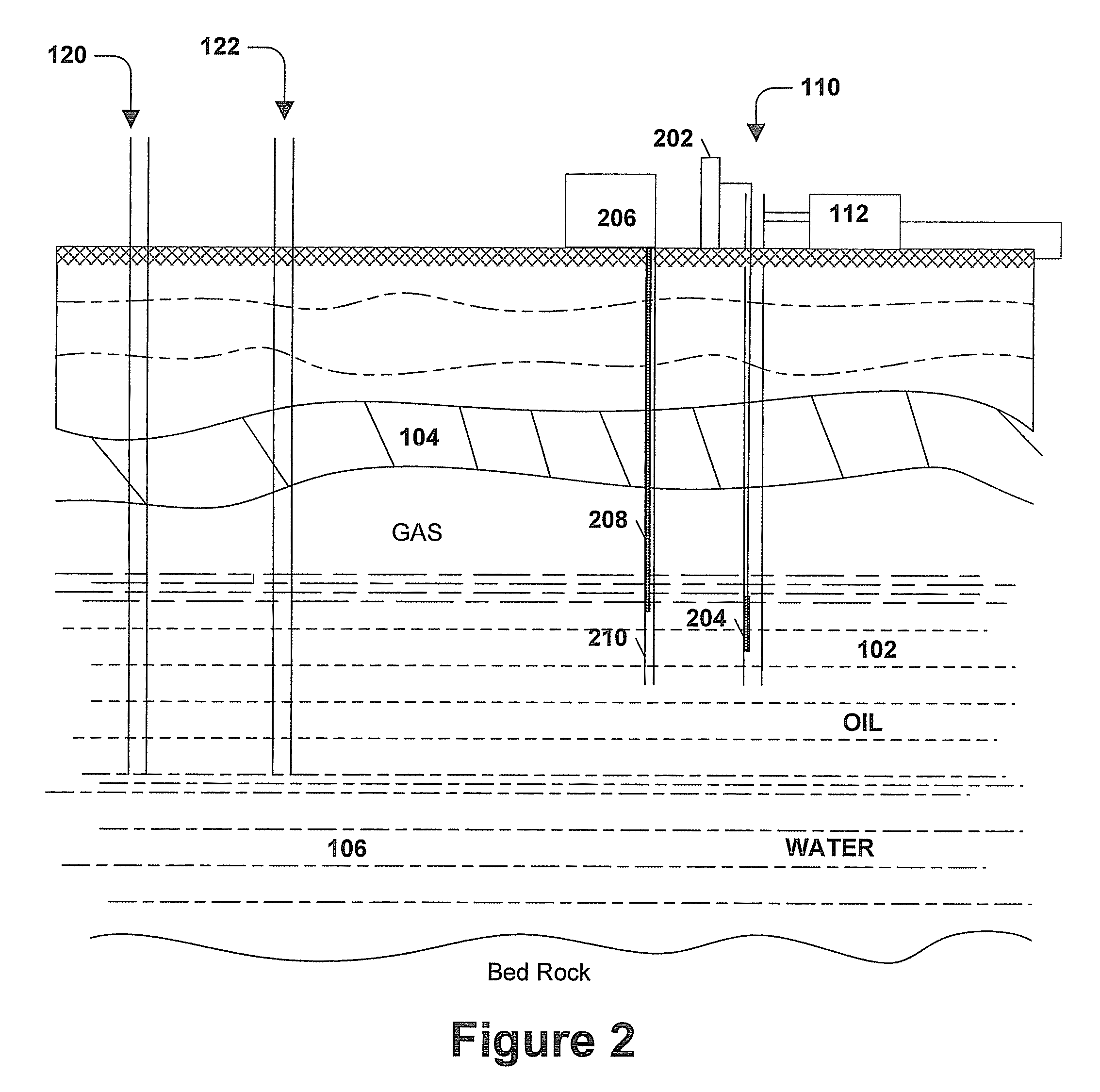Methods for increasing oil production
a technology for oil wells and methods, applied in the direction of fluid removal, borehole/well accessories, climate sustainability, etc., can solve the problems of economic unproductive continued operation of oil wells, methods are typically costly or potentially impractical, and the production is no longer economically sustainable, so as to maximize co2 production, increase the effect of petroleum production and reduce the solubility of co2 gas in water
- Summary
- Abstract
- Description
- Claims
- Application Information
AI Technical Summary
Benefits of technology
Problems solved by technology
Method used
Image
Examples
Embodiment Construction
[0015]Petroleum deposits are typically located in subterranean, porous rock formations wherein the porous rock is overlaid with a less porous rock formation preventing the escape of petroleum to the surface. The layer of less porous rock is often referred to as cap rock. In addition to preventing the escape of petroleum, the cap rock also prevents gases produced from the transformation of organic matter into petroleum. As such, untapped, virgin petroleum deposits are often under considerable pressure.
[0016]The pressure present in untapped petroleum deposits assists in the efficient extraction of petroleum from deposits. An oil well typically consists of a jacketed borehole drilled through the cap rock and into the petroleum bearing rock. Perforations are formed in the jacket and the natural pressure within the petroleum bearing rock causes the migration of petroleum into the borehole. The pressure within the petroleum deposit can be sufficient to create an oil gusher. Large blowout ...
PUM
 Login to View More
Login to View More Abstract
Description
Claims
Application Information
 Login to View More
Login to View More - R&D
- Intellectual Property
- Life Sciences
- Materials
- Tech Scout
- Unparalleled Data Quality
- Higher Quality Content
- 60% Fewer Hallucinations
Browse by: Latest US Patents, China's latest patents, Technical Efficacy Thesaurus, Application Domain, Technology Topic, Popular Technical Reports.
© 2025 PatSnap. All rights reserved.Legal|Privacy policy|Modern Slavery Act Transparency Statement|Sitemap|About US| Contact US: help@patsnap.com



